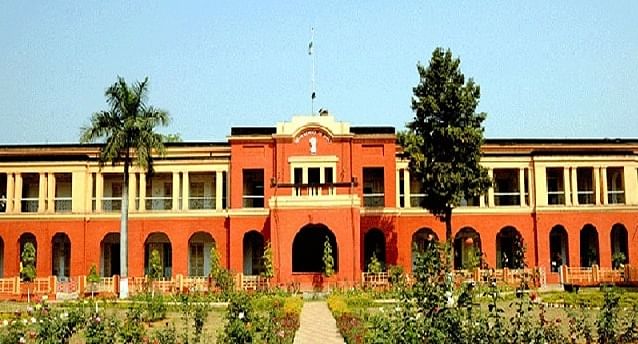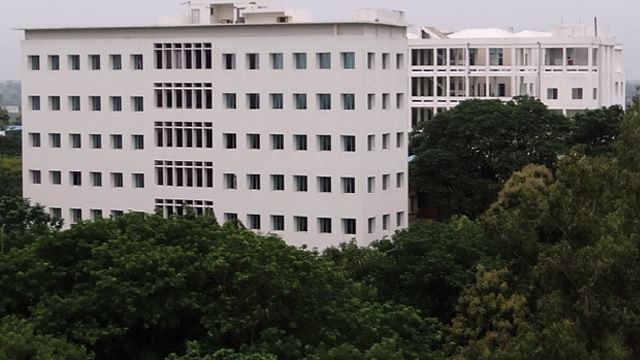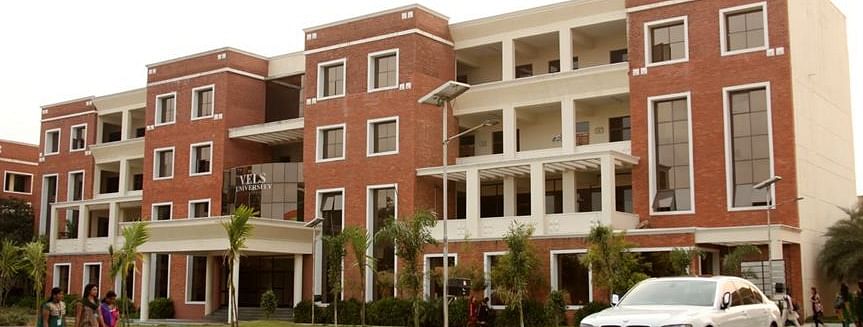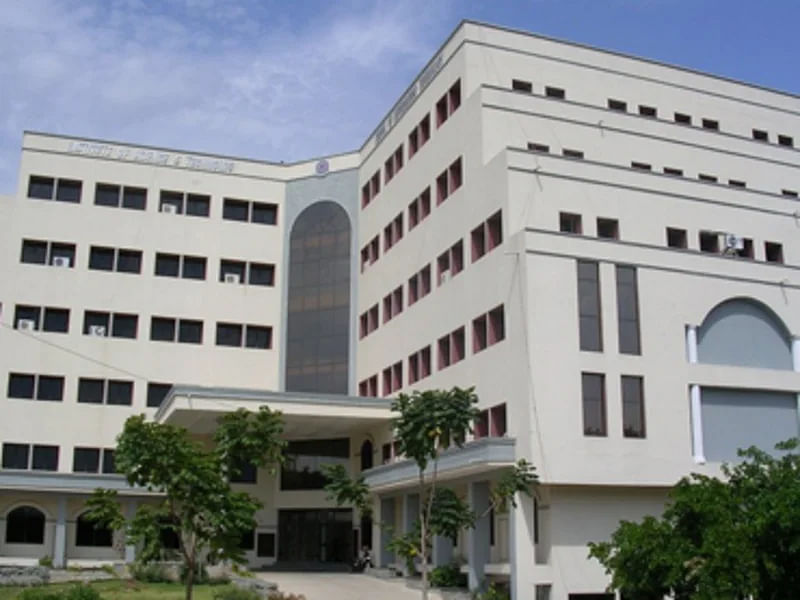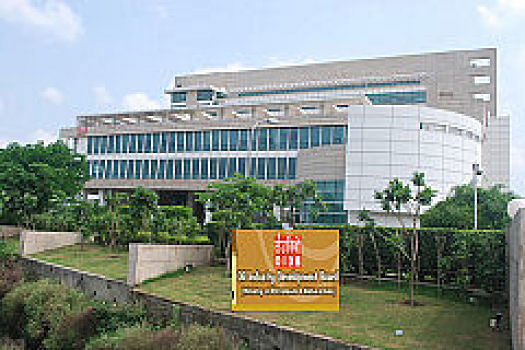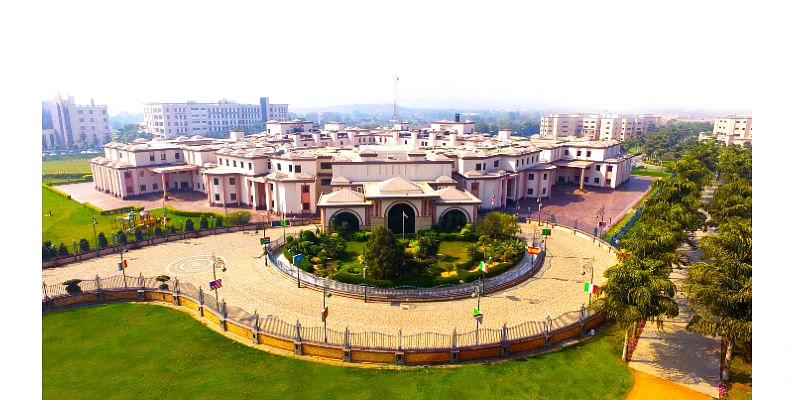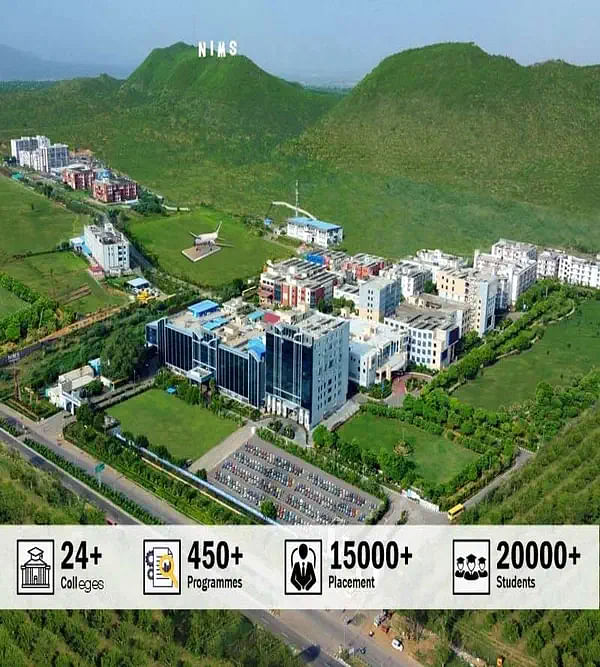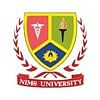B.Tech Petroleum Engineering Syllabus and Subjects

B Tech in Petroleum Engineering syllabus is designed to impart imparts hands-on experience in petroleum engineering during four years of full-time graduation course. B.Tech in Petroleum Engineering subjects cover the study of Engineering Mechanics, Engineering Thermodynamics, Drilling Technology, Petroleum Production Operations, etc.
B.Tech Petroleum Engineering subjects in India are allocated according to the current trends in the job market. Hence the job scope of B Tech in Petroleum Engineering is full of prospects as students can work in petroleum refining companies after the course completion.
Table of Content
B.Tech Petroleum Engineering Semester Wise Syllabus
The B Tech Petroleum Engineering syllabus is divided into eight semesters. B.Tech in Petroleum Engineering syllabus assists students to get familiar with the modern technologies involved in the process of all types of petroleum and auto components. Here is the list of the B.Tech Petroleum Engineering syllabus in a semester-wise sequence:
First Year B Tech Petroleum Engineering Subjects
The subjects in the first year of B Tech in Petroleum Engineering syllabus are given below:
| Semester I | Semester II |
| English | Mathematics II |
| Mathematics | English II |
| Engineering Physics | Engineering Mechanics |
| Engineering Chemistry | Engineering Graphics |
| Engineering Mechanics | Principles of Chemical Engineering |
| Computing Techniques | Physics of Materials |
Practical Topics in the First-Year B Tech Petroleum Engineering Subjects
Some of the practical topics under the first-year B Tech in Petroleum Engineering syllabus are given below:
- Special Core Analyses
- Petrophysical measurements
- Determine the time constant of a given thermometer and thermocouple
Second Year B Tech Petroleum Engineering Subjects
The subjects in the second year of B Tech in Petroleum Engineering syllabus are given below:
| Semester III | Semester IV |
| General Geology | Probability & Statistics |
| Complex Variables | Petroleum Geology |
| Petroleum Engineering | Momentum Transfer |
| Surveying & Offshore Structures | Process Heat Transfer |
| Fluid Mechanics for Petrochemical Engineers | Thermodynamics for Petroleum Engineers |
| Chemical Process Calculations | Natural Gas Engineering |
Practical Topics in the First-Year Petroleum Engineering Subjects
A Petroleum Engineering subject tends to include several practical works under the course. Some of the practical topics under the second-year B Tech in Petroleum Engineering syllabus are given below:
- Study the inherent characteristics of the control valve
- Analyze the theoretical time constant and damping coefficient of the manometer
- Examine the stability of the system using the Bode Plot
Third Year B Tech Petroleum Engineering Subjects
The subjects in the third year B Tech in Petroleum Engineering syllabus are given below:
| Semester V | Semester VI |
| Petroleum Refining | Equilibrium Staged Operations |
| Management Science | Well Completions, Testing & Servicing |
| Chemical Reaction Engineering | Petroleum Production & Refine Engineering |
| Drilling Technology | Petroleum Reservoir Engineering |
| Process Instrumentation Dynamics and Control | Pipeline Engineering |
| Elective | Elective |
Practical Topics in the Thrid-Year Petroleum Engineering Subjects
Some of the practical topics under the third year of the B Tech in Petroleum Engineering syllabus are given below:
- Determination of compositions of Gas with Gas Chromatography
- Practicals and exercises related to the application of an oil field Simulator
- Determination of Reid Vapour Pressure
Note: Students can know more about the syllabus and subjects in India by accessing the petroleum engineering syllabus pdf from the official college website.
Fourth Year B Tech Petroleum Engineering Subjects
Aspirants can choose to specialize according to their area of interest in a subdomain of the petroleum sector in the fourth year. The subjects in the 4th year of B Tech in Petroleum Engineering syllabus are given below:
| Semester VII | Semester VIII |
| Transport Phenomena | Enhanced Oil Recovery Techniques |
| Oil & Gas Processing Plant Design | Surface Production Operations |
| Health, Safety & Environment in Petroleum Industry | Petroleum Economics, Policies & Regulations |
| Petroleum Management, Marketing & Finance | HSE & FE in Petroleum Industry |
| Electives | Electives |
Practical Topics in the First-Year Petroleum Engineering Subjects
Some of the practical topics under the fourth year of the B Tech in Petroleum Engineering syllabus are given below:
- Determination of Gas gravity
- Experiments for improved recovery
- Simulation and interpretation of experiments
B.Tech Petroleum Engineering Subjects
B Tech Petroleum Engineering Subjects is a combination of mechanical, electronics, safety, and chemical engineering studies. Subjects in Petroleum Engineering provide a basic understanding of engineering concepts and understanding petroleum engineering principles and their elements. Some of the core & elective subjects in petroleum engineering are given below:
Core Subjects:
B Petroleum Engineering Subjects are classified into core and elective subjects. Some of the core subjects under the B Tech petroleum Engineering syllabus are given below:
- Drilling fluids and cement
- Drilling technology
- Geologies for Petroleum Engineering Practical
- Humanities and social sciences
- Mechanical Engineering
- Numerical and statistical methods
- Petroleum production operations
- Elements of Reservoir Engineering
Lab Subjects:
Some of the common lab topics under the Petroleum Engineering Subjects in India are given below:
- Physics Lab
- Surveying Practical Lab
- Chemistry Lab
- Workshop Lab
- Geology for Petroleum Engineers Practical Lab
- Petroleum Engineering Practical
- Oil and Gas Marketing Lab
Elective Subjects
The elective topics under the syllabus of Petroleum Engineering are given below:
- Thermodynamics of Reservoirs
- Drilling and Exploration
- Geology of Petroleum
- GeoMechanics
- Engineering Control and Measurement
- Strength of Materials
- Production Engineering
- Oil Recovery Science
- Pipeline Design And Engineering
- Chemical Kinetics
- Oil And Gas Processing System Design
- Enhanced Oil Recovery Techniques
- Deep-sea Production System
- Drilling And Well Completion
- Reservoir Design
- Reservoir Modelling
- Machines and Equipment
- Transportation
B Tech Petroleum Engineering Subjects in Detail
The syllabus of Petroleum Engineering is diverse and includes various domains of study. A detailed view of some of the subjects in petroleum engineering is given below:
|
B Tech Petroleum Engineering Subjects |
Topics Covered |
|
Engineering Chemistry |
High Polymers And Plastics, Fuel Technology, Electrochemical Cells and Corrosion, Chemistry Of Advanced Materials, Water Technology |
|
Computer Programming |
History and Hardware, Introduction to C Programming, Control Flow-Relational Expressions, Arrays & Strings, Pointers, Structures, Files |
|
Elements of Mechanical Engineering |
Stresses and strains, Types of supports, Steam boilers and Reciprocating air compressors, Internal combustion engines, Transmission systems |
|
General Geology |
Fundamental concepts in Geomorphology-geomorphic processes, Geological work of rivers, wind, ocean, glaciers, Origin of igneous, sedimentary and metamorphic rocks |
|
Materials Science & Engineering |
Classification of engineering materials, Crystal Imperfections, Fracture and failure of materials, Materials for chemical and petrochemical industrial process equipment |
|
Thermodynamics for Petroleum Engineers |
The first law and other basic concepts, Volumetric properties of pure fluids, Solution thermodynamics, Phase Equilibria |
B.Tech Petroleum Engineering Course Structure
B.Tech Petroleum Engineering is a multidisciplinary engineering branch that combines experimental and natural sciences, economics, life science, and mathematics. Internships and projects are an essential part of the B.Tech Petroleum Engineering course. A general course structure is given below:
- VIII Semesters
- Core and Elective subjects
- Dissertation Submission
- Project and Viva Voce
- Mandatory Internship
- Lab subjects
B.Tech Petroleum Engineering Teaching Methodology and Techniques
Students can intern in petroleum-related companies as they have to submit the final year internship file. Students learn new techniques for reducing the environmental impact of fuel extraction and refining processes through classroom learning, laboratory work, and field studies. Some of the teaching methods and technologies employed in education method are given below:
- Case Study Methods
- Presentations
- Electronics Lab Work
- Field Projects and Assignments
- Practical Learnings
- Problem-based
- Curricular Activities
- Field Learnings
B.Tech Petroleum Engineering Projects
The primary focus of the projects under the B Tech Petroleum Engineering syllabus is to provide the students with the skills for their growth in the petroleum sector. These projects can encourage students to brainstorm, research, and discover novel ideas. Some of the popular project topics are given below:
- Realization of a Virtual Deployment on the Internet
- Acquisition and Implementation of Petroleum Software for Use in Teaching
- Acquisition and Maintenance of Relevant Reservoir Engineering-software
- Setup of a Project Management and Controlling Infrastructure
- Well Completion Fluid Dynamics
- Software for Reservoir Engineering
- Knowledge Capture Base
- Geological Characterization of Oil and Gas Reservoirs
- Stratigraphical Characterization of Oil and Gas Reservoirs
- Stochastic Pet Economics
- PEPE Marketing
- PEPE Controller
B.Tech Petroleum Engineering Reference Books
The best books for petroleum engineering explore a wide range of topics. These books give new ideas and in-depth knowledge on specific topics. Here is the list of top reference books for B.Tech Petroleum Engineering students:
| Books | Author |
| Quantitative Methods in Reservoir Engineering | Wilson C. Chin PhD |
| Remediation of Petroleum Contaminated Soil | Eve Riser-Roberts |
| Commercial Nuclear Power: Assuring Safety for the Future | Charles B. Ramsey and Mohammad Modarres |
| Deepwater Oil Production and Manned Underwater Structures | M. Jones |
| Remediation of Petroleum Contaminated Soil | Eve Riser-Roberts |
Top B.Tech Petroleum Engineering Colleges
Top Engineering Entrance Exams
B.Tech Petroleum Engineering Fee Structure
FAQs on B.Tech Petroleum Engineering Syllabus and Subjects
Q: Does Petroleum Engineer require math?
Q: What are the core subjects of BTech petroleum engineering?
Q: What are the elective subjects in BTech petroleum engineering?
Q: What are the projects in BTech petroleum engineering?
